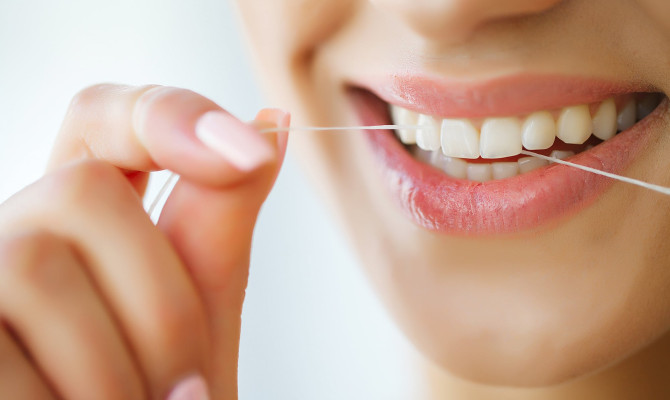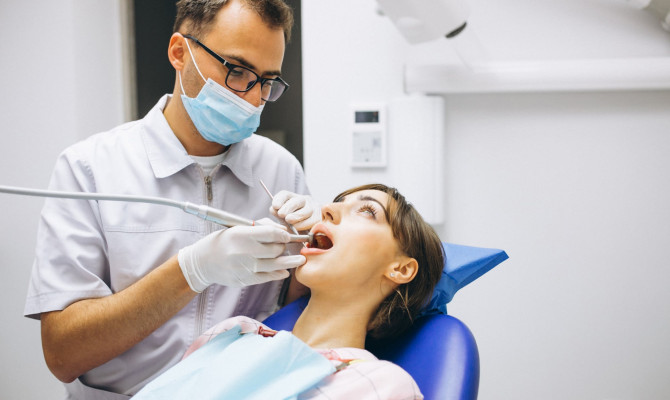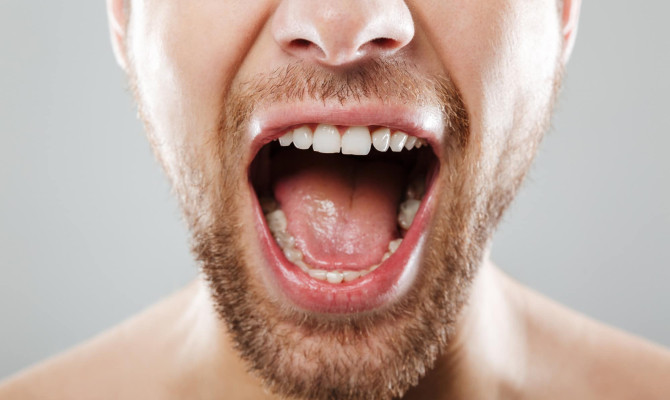Bad breath : Understanding and Management

- Bad Breath
- 16 Aug 2023
Overview
About bad breath
Bad breath can be unpleasant and negatively affect social interactions and self-esteem. Therefore, it’s essential to understand the root causes and take action to either treat or avoid them. It can be associated with several other conditions.1Overview | Researched based study from Nlm.nih.gov

Facts
Facts about bad breath
- Halitosis, sometimes referred to as bad breath, can affect people of all ages.
- It is characterized by significantly impacting the population, with 25–30% of people reportedly suffering from chronic bad breath.
- The mouth is where it usually starts. However, medical issues can also contribute to it.
- Foods like onion and garlic might temporarily make your breath foul.
Types
Types of bad breath
Transient bad breath
- This kind of bad breath is temporary and frequently results from eating particular foods, having poor oral hygiene, or smoking.
- It is readily treatable by taking good care of your mouth and avoiding specific foods.
Chronic bad breath
- This kind of breath lingers long after brushing and flossing, and it could indicate a more severe health issue such as digestive issues, lung infections, or gum disease. More thorough treatment is needed to address the underlying cause of persistent foul breath.3Types | Researched based study from Nlm.nih.gov
Breath odors
Classification of breath odors
The odor of poor breath can also be used to classify it. Following are some examples of typical unpleasant breath odors:
Sulfuric smell
- The most prevalent type of foul breath odor is sulfuric, or “rotten egg,” frequently brought on by bacteria in the mouth breaking down food particles.
Fruity or sweet smell
- This type of condition might indicate diabetes or another form of metabolic disorder.
The odor of chemicals or medicine
- Certain medications may cause such an odor.
Smells like ammonia
- This can be a symptom of liver or kidney illness.3Breath odors | Researched based study from Nlm.nih.gov
Symptoms
What are the symptoms?
An unpleasant odor emerging from the mouth is the predominant symptom. However, there are more signs and symptoms, such as:
- A sour or unpleasant aftertaste
- The tongue has a white or yellowish coating.
- Dry mouth
- Thick saliva
- An oral burning sensation
- Chronic cough or sore throat
- Decayed teeth or gum disease
- Having trouble swallowing
- A postnasal drip
- Metallic taste in the mouth.3Symptoms | Researched based study from Nlm.nih.gov
Causes
What are the causes?
Oral hygiene issues
- Insufficient brushing and flossing can leave food particles and bacteria in the mouth, leading to bad breath.
Gum disease
- Untreated gum disease can lead to poor breath due to the bacteria that cause it to produce a sulfur-like odor.
Dry mouth
- The germs and food particles that can lead to halitosis are washed away by saliva. Bad breath can happen when there is insufficient saliva in the mouth, or someone has xerostomia.
Certain foods and beverages
- Foods and beverages, including garlic, onions, coffee, and alcohol, can temporarily foul your breath.
Smoking and using tobacco
- Injuring the gums and creating a lingering odor in the mouth might result in bad breath.
Medical issues
- Halitosis can also be brought on by several illnesses, including liver or renal issues, diabetes, post-nasal drip, acid reflux, sinus infections, and post-nasal drip.
Medications
- Some medications, including antidepressants and antihistamines, can dry out the mouth and cause bad breath.
Oral infections
- Conditions including thrush and gum abscesses can bring on bad breath.1Causes| Researched based study from Nlm.nih.gov
Diagnosis
Diagnostic factors
Oral assessment
- For indications of tooth decay, gum disease, or other oral disorders, a dentist or physician might check the mouth and teeth.
Medical background
- To determine the cause, a doctor may inquire about your medical history and any medications you are now taking.
Breath test
- Sulfur compounds in your breath can be measured using specialized breathalyzers and may be a sign of bacterial presence.
Saliva tests
- Saliva production can be measured by tests, which can be used to spot cases of dry mouth. 2Diagnosis | Researched based study from Nlm.nih.gov
Management

How to manage bad breath?
Improving oral hygiene
- Bacteria and food particles can be appropriately removed by brushing your teeth twice daily, flossing once daily, and using an antimicrobial mouthwash.
Taking care of gum disease
- To get rid of the bacteria causing foul breath, gum disease must be treated if it is the cause.
Treating dry mouth
- Utilizing saliva substitutes, chewing sugar-free gum, and drinking lots of water will help treat dry mouth and lessen halitosis.
Addressing underlying health issues
- If an underlying medical problem, such as sinusitis or acid reflux, is the root of your bad breath, addressing that disease can help you eliminate it.2Management| Researched based study from Nlm.nih.gov
Drug dosage modifications
- Your doctor may change the dosage or recommend a different prescription if a medication is producing dry mouth.
Routine dental examinations
- Regular checkups and cleanings at the dentist can help detect oral problems.
Using specialty products
- Probiotics, green tea, and tongue scrapers are some items that can aid with bad breath.5Management|Researched based study from Nlm.nih.gov
Restricting certain foods
- Onions and garlic-These foods have sulfur-containing chemicals that give people foul breath.
- Hot foods brings on a burning sensation in the mouth that results in poor breath.
- Tea and coffee
- Alcohol may cause mouth drying, which might result in poor breath.
- Sugary meals and beverages might encourage the development of oral bacteria, which might aggravate halitosis.
- Sour foods like citrus fruits and tomatoes are two foods that might make your mouth feel more acidic.
- Dairy items can cause bad breath and leave a film on the tongue.5Management | Researched based study from Nlm.nih.gov
Complications
What are the complications of bad breath?
Social isolation
- People with bad breath may avoid social events out of embarrassment, resulting in social isolation and a lower quality of life.
Low self-esteem
- Chronic foul breath can cause low self-esteem and impaired social confidence.
Dental issues
- Gum disease and tooth decay can develop into severe dental problems if left untreated.
Respiratory difficulties
- It may occasionally be a symptom of respiratory conditions such as sinusitis, bronchitis, or pneumonia. 7Complications | Researched based study from Nlm.nih.gov
Digestion issues
- It may be a sign of digestive issues like acid reflux, which can cause discomfort and esophageal damage over time.
Issues with mental health
- Chronic foul breath interferes with personal or professional life and can cause despair and worry.4Complications | Researched based study from nhs.uk
Prevention
Preventing bad breath
Twice a day, brush your teeth
- Both before bed and in the morning, brush your teeth. To get rid of plaque and bacteria, clean your teeth using a soft-bristled toothbrush and fluoride toothpaste.
Floss every day
- Plaque and food particles can be removed from between teeth with flossing.
Keep hydrated
- To help flush out bacteria and food particles, drink plenty of water.
Avoid the tobacco
- In addition to increasing your risk of gum disease and other oral health issues, smoking and using other tobacco products can contribute to foul breath.
Go to the dentist regularly
- Regular dental cleanings and examinations can help identify and prevent problems with oral health.6Prevention | Researched based study from Nlm.nih.gov
Emergency
When should I go to the dentist?
If any of the following is the case, you should schedule a visit with your doctor:
- Your bad breath continues even after regular cleaning and flossing of your teeth.
- If you also have additional signs, like a sore mouth, toothache, or bleeding gums.
- If a fever, sore throat, or trouble swallowing is present.
- If you wish to rule out any primary medical conditions and are worried about the underlying reason for your bad breath.
Any feedback on this article?
 This Articles content was accurate
This Articles content was accurate Very Informative Article
Very Informative Article I have a question or a comment
I have a question or a comment
 This article contains inaccurate content
This article contains inaccurate content This article was not helpful
This article was not helpful I have a question or a comment
I have a question or a comment
We appreciate your helpful feedback!
Checkout our social pages
References
-
National Library of Medicine
Halitosis: Current concepts on etiology, diagnosis and management | Overview | Causes
-
National Library of Medicine
Halitosis: From diagnosis to management | Diagnosis | Management
-
National Library of Medicine
Halitosis | Symptoms | Types | Odors
-
National Health Service
Bad breath | Complications
-
National Library of Medicine
Halitosis: the multidisciplinary approach | Management
-
National Library of Medicine
Oral malodour (halitosis) | Prevention
-
National Library of Medicine
Bad breath | Complications




































